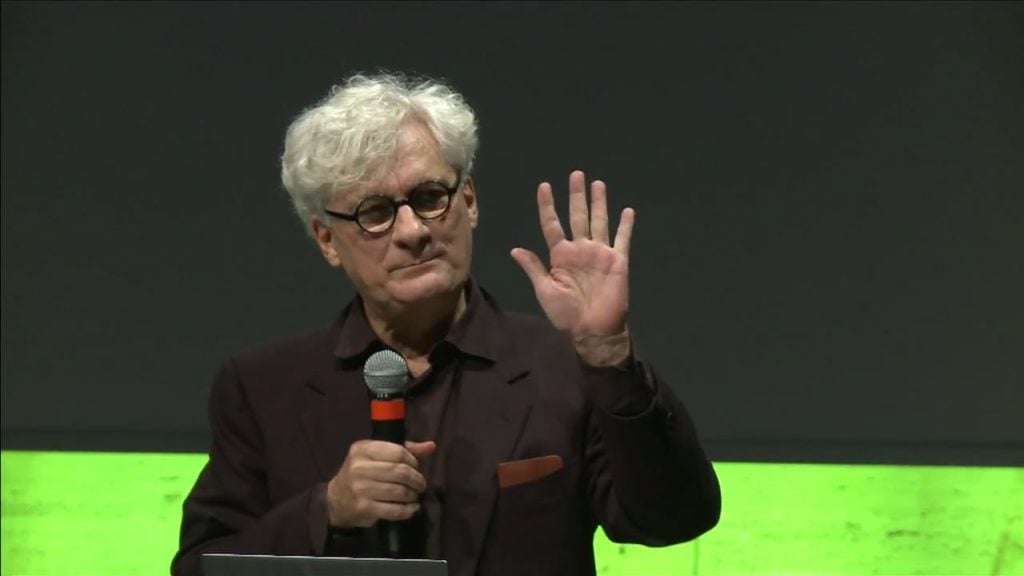Art World
documenta 14 Cancels ‘Auschwitz on the Beach’ Performance Amid Intense Criticism
The performance will be replaced with a poetry reading and public discussion on the migrant crisis in Europe.

The performance will be replaced with a poetry reading and public discussion on the migrant crisis in Europe.

Henri Neuendorf

documenta 14 has canceled a performance about the European migrant crisis by the Italian writer and media activist Franco “Bifo” Berardi. The piece, titled Auschwitz on the Beach, was called off following intense criticism and outrage over the performance’s reference to the Holocaust, and comparing the plight of refugees in Europe to Auschwitz.
In a statement published on documenta 14’s website, curator of public programs Paul B. Preciado wrote, “In response to the violence and volume of complaints and disparaging remarks received during the last week, we have decided to cancel Franco ‘Bifo’ Berardi’s performance. We respect those who might feel offended by the title of Berardi’s poem. We don’t want to add pain to their grief.”
Preciado was quick to point out in his letter, however, that instead of canceling the planned performance outright, the piece would be replaced with a public reading of the Berardi poem that inspired the original work and an open discussion on the migrant crisis in Europe. The new event will be titled Shame on Us: A Reading and Discussion, referring to the multiple messages ending with “shame on you,” in rebuke of the intended performance. In addition, Shame on Us will be presented as part of the Parliament of Bodies, documenta 14’s public programs initiative. The reading will also take place just four days before the official visit of Germany’s Minister of Foreign Affairs Sigmar Gabriel to documenta 14.
Earlier this summer, Berardi caused a scandal with his open letter to announce his resignation from the board of the DIEM25. In it the artist compared the migrant camps on the Mediterranean Sea to concentration camps, and claimed that European governments are paying Turkey, Libya, and Egypt “to do the dirty work along the shores of the Mediterranean where salt water has replaced Zyklon B.”
Speaking to the German daily Frankfurter Allgemeine Zeitung, Charlotte Knobloch, commissioner for Holocaust Memorials of the World Jewish Congress, criticized the canceled performance as “a grotesque production,” explaining that “to describe the refugee debate within the context of the systematic extermination of the Jews is untenable, bears witness to unspeakable ignorance and lacks all feelings of shame. The Holocaust is a singular, unprecedented crime. Any relativization or denial is forbidden.”
Responding to artnet News’ request for comment, documenta 14 deferred to a statement by artistic director Adam Szymczyk in which he states:
“In its magnitude and systemic nature of state-orchestrated destruction of an entire race, the Holocaust remains a singular manifestation within human history…. Berardi’s intention is to seriously and responsibly locate the Holocaust as the ultimate border reference for the extreme, violent, and systemic injustice perpetuated by national and transnational European institutional bodies toward the physical bodies of the refugees who attempt to flee to Europe and die during the flight…. The planned discussion and reading of Berardi’s poem within the Parliament of Bodies is a warning against historical amnesia, a call for an awakening of conscience and for collective action—and not an attempt to relativize the Holocaust.”